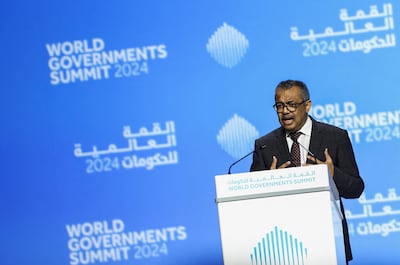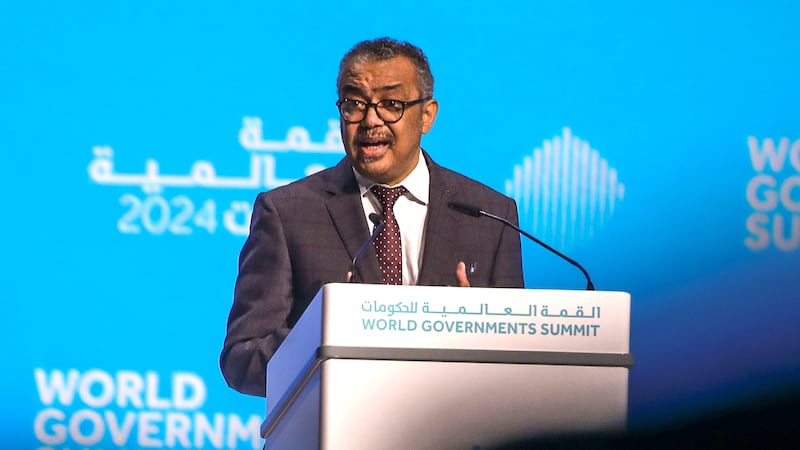An international agreement on pandemic preparedness is a commitment to national security that must not be derailed by a litany of lies and misinformation, the World Health Organisation said.
Speaking at the World Governments Summit in Dubai, WHO director general Dr Tedros Adhanom Ghebreyesus said claims the mechanism aimed to take pandemic controls including lockdowns out of the hands of sovereign states were wide of the mark.
A draft treaty has been criticised for failing to protect rights protected under international law, such as a right to health and access to scientific development.
Two years on since negotiations began on building an international framework to protect nations in the face of another global pandemic, time is running out for a detailed agreement to be signed by 194 member states.
Dr Tedros called on world leaders attending the summit in Dubai to commit to the treaty when the World Health Assembly convenes on May 27.
“Exactly six years ago, I said the world was not prepared for a pandemic and expressed my concern at that time that a pandemic could happen any time,” he said.
'There will be a next time'
“Less than two years later, the Covid-19 pandemic struck, and the world is still not prepared today.
“In the aftermath of Covid-19, millions of people are dead with social, economic and political shocks that reverberate to this day.
“The painful lessons we learned are in danger of being forgotten as attention turns to many other crises confronting our world.
“But if we fail to learn those lessons, we will pay dearly next time – and there will be a next time. The cycle of panic and neglect is beginning to repeat.”

Inadequate response
Legally binding international health regulations were criticised as inadequate during the handling of Covid-19, and are also under reform.
While Dr Tedros declared an international public health emergency in January 2020, the worsening situation was not classified as a pandemic until two months later.
Since then, progress has been made in improvements to pandemic surveillance, the establishment of a pathogen sharing hub and building on capacities in vaccine production in record time.
Meanwhile, scientists have united around the world to identify the next emerging pathogen that could threaten humanity.
More than 200 experts working with the WHO are currently assessing the pandemic risks from 30 families of viruses and a core group of bacteria.
Dr Tedros backed up previous concerns made at the World Economic Forum in Dabvos in January that misinformation threatened to derail an international pact designed to protect nations during another outbreak.
Mission critical
“There is a litany of lies and conspiracy theories about the agreement,” said Dr Tedros.
“It is claimed that it's a power grab by the WHO or that it will cede sovereignty to the WHO and give it power to impose lockdowns or vaccine mandates on countries.
“Others said it's an attack on freedom and that the WHO will not allow people to travel, or want to control people's lives. These claims are utterly, completely and categorically false.
“The agreement actually affirms national sovereignty and national responsibility in its foundational principles.
“It's about the commitments countries are making to keep themselves and each other safer from pandemics.
“That's why the pandemic agreement is mission critical for humanity. We will not expose the generations who follow us to the same suffering that we endured.”







